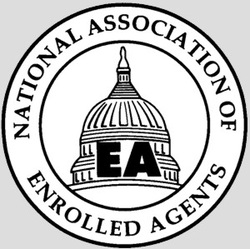
What is an Enrolled Agent?
An Enrolled Agent (EA) is a federally-authorized tax practitioner who has technical expertise in the field of taxation and who is empowered by the U.S. Department of the Treasury to represent taxpayers before all administrative levels of the Internal Revenue Service for audits, collections, and appeals. Enrolled agents, like attorneys and certified public accountants (CPAs), are unrestricted as to which taxpayers they can represent, what types of tax matters they can handle, and which IRS offices they can practice before.
What does the term “Enrolled Agent” mean?
According to the National Association of Enrolled Agents, "enrolled" means that an individual is licensed to practice, and "agent" means authorized to serve as the proxy for a taxpayer
Are enrolled agents bound by standards?
Enrolled agents are required to abide by the provisions of U.S. Department of the Treasury Circular 230, which provides the
regulations governing the practice of EAs before the IRS. National Association of Enrolled Agents (NAEA) members also are
bound by the NAEA Code of Ethics and Rules of Professional Conduct.
Ethical Standards
All enrolled agents are mandated to comply by the provisions highlighted in the U.S. Department of Treasury Circular 230, which governs the actions of enrolled agents when interacting with the IRS.
In addition to the stringent testing and application process, the IRS requires Enrolled Agents to complete 72 hours of continuing professional education, reported every three years, to maintain their Enrolled Agent status. NAEA members are obligated to complete 90 hours per three year reporting period. Because of the knowledge necessary to become an Enrolled Agent and the requirements to maintain the license, there are only about 46,000 practicing Enrolled Agents.
[Soft Break]
